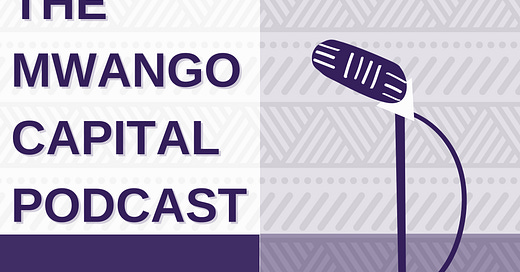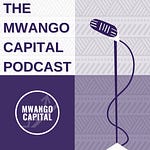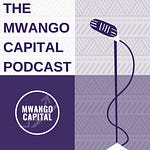In this episode recorded on 30.07.2024, we explore the challenges and expectations for John Mbadi as Kenya's now Treasury CS, focusing on fiscal strategies, cost-cutting, tax policy, public debt management, and the impact of debt restructuring on financial institutions. The discussion also covers how citizens can hold the government accountable and the importance of transparent and efficient fiscal management.
Our host is Ramah Nyang who is joined by Churchill Ogutu - Economist at IC Group, Stephanie Kimani - Economist, and Ruth Kendagor - Head of Research at The Institute of Public Finance.
This episode is brought to you in partnership with The Institute of Public Finance.
Subscribe to get notified when we make a new post.
Key Quotes
“Instead of looking at introducing new taxes and increasing tax rates, I would suggest he focuses on just enhancing the tax collection mechanism, as well as broadening the tax base to increase government revenues. Broadening the government tax base, in this case, is based on the use of digital tax systems just to minimize tax evasion as well as optimize the compliance in overall tax collection and remittance.” - Stephanie Kimani, Economist
“Our tax system has inclined quite significantly on consumption taxes, VAT, and excise tax. Excise tax is meant to be a sin tax. Let it be a sin tax and let's stop the creativity of saying maybe if we include financial services here, we'll get some extra coin. It's a sin tax, let it be a sin tax. Do not impose a fine on other components that are not sins, on issues that affect the day-to-day lives of citizens, issues that make people's lives easier, and issues that make business life easier.” - Ruth Kendagor, Head of Research at the Institute of Public Finance
“When there's a need for budget cuts, it's always the development spend that is cut fast or cut more drastically. This provides the government an opportunity to increase the use of PPPs to fund those large infrastructure projects, which would at the very least help the government in its development agenda.” - Stephanie Kimani, Economist
“What has been happening in the space over the last three, four years, actually even longer than that is, we find that measures that are introduced in the 2023 finance bill have now been reverted in the 2024 finance bill. Measures that were introduced in the 2022 finance bill were reverted in the 2023 finance bill. So predictability really affects business planners. Say, for instance, you are investing in a particular industry in the hotel industry or the hospitality industry and the finance bill 2023 had given you a particular benefit in terms of tax exemptions or subsidized rates for you to put in your investment. Now you look for this good money, billions or millions to invest, and just before you finish constructing your hotel, you haven't even finished it for you to recover anything, the law is changed, and the taxes back up. So really it discourages investors and businesses, and one of the responses we've seen is that a number of businesses have cut back because of the unpredictability of the system.” - Ruth Kendagor, Head of Research at the Institute of Public Finance
“Rescheduling has to happen around reforms. As long as we continue having problems with wastage, for as long as we continue having problems with corruption, and leakage, our rescheduling process will happen, but it will happen in a problematic manner. It will affect citizens because of the extra burden, and any additional cost that comes with it, all the additional pressure will be transferred to citizens. It really will not address the root cause that was meant to be addressed because the whole reason why we want to talk about rescheduling is because we had bad decision-making when we were borrowing debt. And so if these reforms are not put in place, the rescheduling will not really translate much. Finally, rescheduling needs to happen within an environment where there are prospects for economic growth, where you know that we're rescheduling this debt at this particular time, using these resources to invest in this particular area so that we spark growth and the revenues that will be generated from the growth sectors, then you'll be able to pay off that debt.” - Ruth Kendagor, Head of Research at the Institute of Public Finance
Show Notes
00:00:00 Introduction
00:01:37 Top things expected of John Mbadi
00:09:24 What alternatives do Kenyan policymakers have?
00:13:17 Opportunities to cut cost
00:23:55 Unpredictability of tax strategy/laws
00:30:49 Tax cuts
00:40:38 Public debt management
00:44:24 Potential impact of debt restructuring
00:52:06 How can citizens hold the government accountable?













Share this post